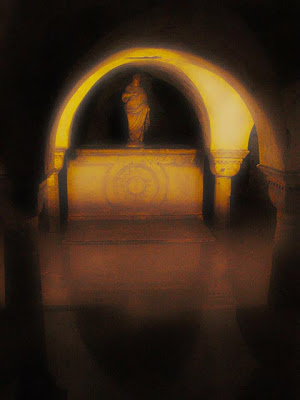“What happened in Montalcino earlier this month was horrendous, but as bad as it was, it paled in comparison to what has been going on in the Veneto. They have virtually raped the land, stripped it of any character in pursuit of dollars. The popularization of Prosecco has had enormous effect on people, on farming, on the earth.”In review of events that have transpired in Italy this year, the perversion of Prosecco persists. Enormous growth year after year has people chasing after more and more profit, pushing the land, changing laws, reducing the Veneto to a mere factory for the whims of folks who no longer want to spend money on Champagne and sparkling wine of character.
Many of us were struck by the harshness of the act that one man perpetrated early one morning in December in Montalcino. It was horrid, indeed. But the systematic dismantling of tradition in the Veneto, from Valdobbiadene and Conegliano, on the gentle slopes that humankind has lovingly nurtured - that is tragedy of legendary proportions. Culture, tradition, quality, values - all receding like the arctic ice in the Polar zones.
Yet there are those who remain true to their calling. Treating the earth below them as a temporary place to care for and husband. They exist in the hills, following after their grandfather’s ways. Some of them found their way there in the 1970’s, young, idealistic, returning to their roots and Mother Earth.
But America and Great Britain came knocking, looking for sparkling wine alternatives to the more expensive (and drier) Champagne. And in less than a generation, a sea change, a revolution took place - the popularization of Prosecco.
What once was a curiosity in the bars of Venice, dolloped with peach puree or simply by itself, grew in popularity. Like a ravenous army that couldn’t get enough of war and pillage, agents were sent in to procure more, and at lower prices. Importers, wine buyers from supermarkets and massive chain stores went in looking for a steady supply of sweet fizzy inexpensive juice for their thirsty clients back home. And with not so much as a struggle the Veneto gave up its hearts and souls. It was really less of a rape than an act of consent, but the effect would be seen in the future more as a wave of aggression with no resistance.
Chemicals poured onto the land to make the vines produce higher quantities. Yeasts developed for soft, velvety, fruity flavors. Shortcuts to bring the product to market sooner. Shorter ageing, taking the wine off the lees, cold stabilization so the wine wouldn’t go "its own way", and on and on.
And who raised a voice? Who dared to peer beyond the linen curtain? Everywhere you would see young men and women dressed in the best fashions from Milan, driving the newest flashiest cars from BMW, Rover, Mercedes. Gold and marble dripping from the new wineries. All of a sudden the summer house in Rolle wasn’t good enough; they had to go to Panarea, Costa Esmeralda or the Seychelles.
Overnight the values of generations of souls who worked the land intimately, they were all swept under the mat. For a few pieces of silver.
“The world wrings their hands over every little fart that is made in Montalcino, but the Veneto has encountered a tsunami and no one cries out. Our collective values in Italy have genuflected to desire and desecration.”From a distance it does seem Italy has no regret of giving up the Veneto to Mammon. The grand cru of Prosecco, the hill of Cartizze, a place like I have never seen anywhere else in the world. Is this where the devil took the collective soul of Italy to tempt it to give up their sons and daughters, their way of life? On the gilded walls of San Marco in Venice, were the artists prescient in their depiction of this vile act?
The greater tragedy isn’t a loss of 60 thousand bottles of one man’s wine. It’s the loss of an entire culture, a culture in which Prosecco was integral to the lifeblood of the soul, not solely the economy. 60 million bottles, not 60 thousand, and a culture destroyed to boot! And where are the wine writers and bloggers? Scratching around for more dirt on the Soldera incident, or rooting around the MacLean affair or the Parker sale. Little things compared to the end of an epoch.
And yet will we not see thousands of words spilled over articles with titles like “Best Buys in Bubbly for New Year’s Eve” from which Prosecco will be crowned the king of all things sparkling? A king without a robe, or a heart. Or a land.
Thinking on these things as we transition form one time to another. Not the end of 2012 and the beginning of 2013, some discretionary value that we have all agreed to believe in. Something greater than 365 measly days. Meanwhile the hundreds of years of tending the land with love is shown the door and sent out the back way to roam in the desert for the rest of time.
The devil is in the details.
 |
| Under the Doge's Palace |
written and photographed (in the Veneto) by Alfonso Cevola limited rights reserved On the Wine Trail in Italy

wine blog + Italian wine blog + Italy W










